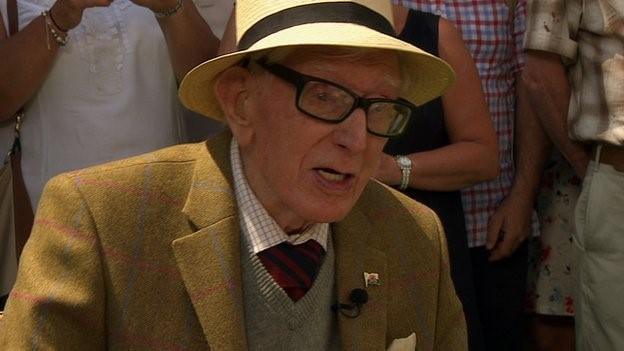WW2 raid that led to the elite British Commandos
- Published
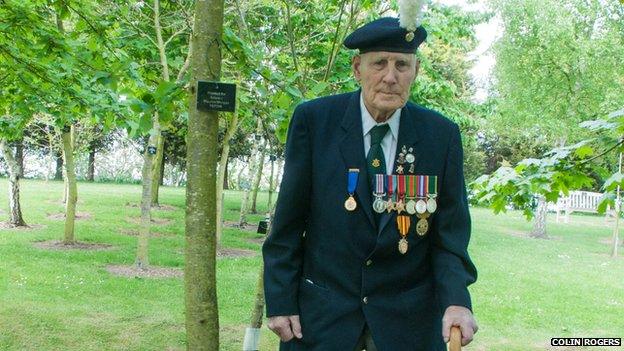
Now 96, Welshpool veteran Ted Jones was on the very first 'Commando' raid of World War Two
It was June 1940 - the dark days of World War Two - and British forces were retreating from the beaches of Dunkirk.
But as the British Expeditionary Force licked its wounds, Prime Minister Winston Churchill demanded action.
And that was how a now long-retired mid Wales farmer found himself as part of a specially assembled fighting force of 115 men.
Their daring raid went on to inspire the Commandos, and special forces like the SAS and the US Army Rangers.
But it is only now that 96-year-old Ted Jones from Welshpool has been able to piece together the significance of that night in France - the night Britain launched Operation Collar.
"When we landed on the beach at Calais the Germans were waiting for us, so we opened up on them with the Thompson machine gun," he said.
"Well that's what we'd been told to do, just cause as much damage as we could, kill as many Germans as possible - then get the hell out of there again.
"When we'd shot the first two guards all the flood lights had come on, so the speedboat had put out back to sea.
"In the meantime the beach was now crawling with German patrols looking for us. All we could do was hide in the rushes and hope.
"I said my prayers several times that night, I didn't think I was getting out of there."
But escape they did and it was an enormous boost to the country's morale.
"Well of course I'd told people about the raid and what we got up to, but to be honest with you I had no idea it was the very first raid and that it was what had inspired the Commandos," Mr Jones added.
"It was only after talking to friends in the Welshpool Royal Welch Fusiliers group that they put the times and places together and worked it out.
"I didn't think about it, it was just an adventure I had a long time ago."
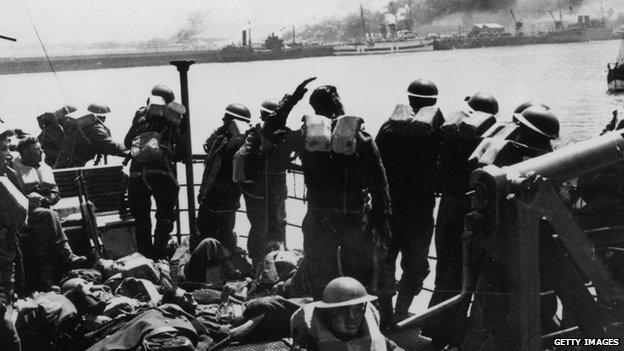
Operation Collar was ordered within weeks of the Dunkirk evacuation
It was an adventure that began in the desperate days after Dunkirk, when Churchill called for a force of "specially trained troops of the hunter class who can develop a reign of terror down the enemy coast".
The first soldiers were drawn from reservists, including Mr Jones's own 10th Battalion Royal Welch Fusiliers.
With just a week's training, and travelling on lightly-armoured speed boats, four groups converged on beaches around Calais on the night of 24 June.
His mission was to help locate a hotel thought to be a barracks for German troops.
But after landing, they found the building derelict, and their boat speeding back out to sea as enemy soldiers tried to hunt them down.
They hid in reeds and waited until the morning when their boat finally returned - dumping their gear to swim out to the vessel.
"We were petrified and half-frozen by the time we were rescued, but then one of the lads found three bottles of rum on the boat, so we thought we'd have a party after the night we'd had."
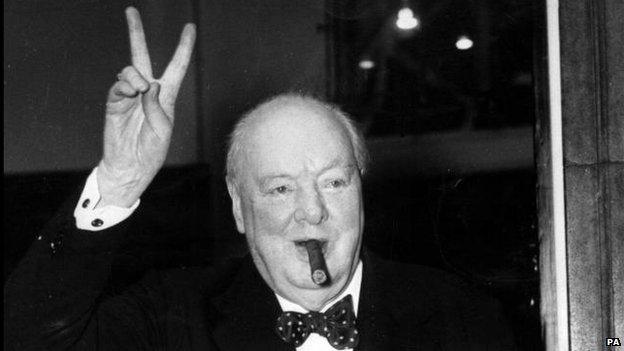
Winston Churchill ordered his chiefs of staff to create the raiding units - which later became the British Commandos
Tactically, the raid had little impact but it was an amazing propaganda success as the 115 men returned safely.
And soon, Commando units were delivering on Churchill's promise so much, in fact, that Hitler was enraged, accusing the elite forces of being "terror and sabotage troops" acting beyond the scope of the Geneva Convention on acceptable warfare.

Ted Jones's war continued after Operation Collar in Madagascar and Burma
- Published20 February 2015
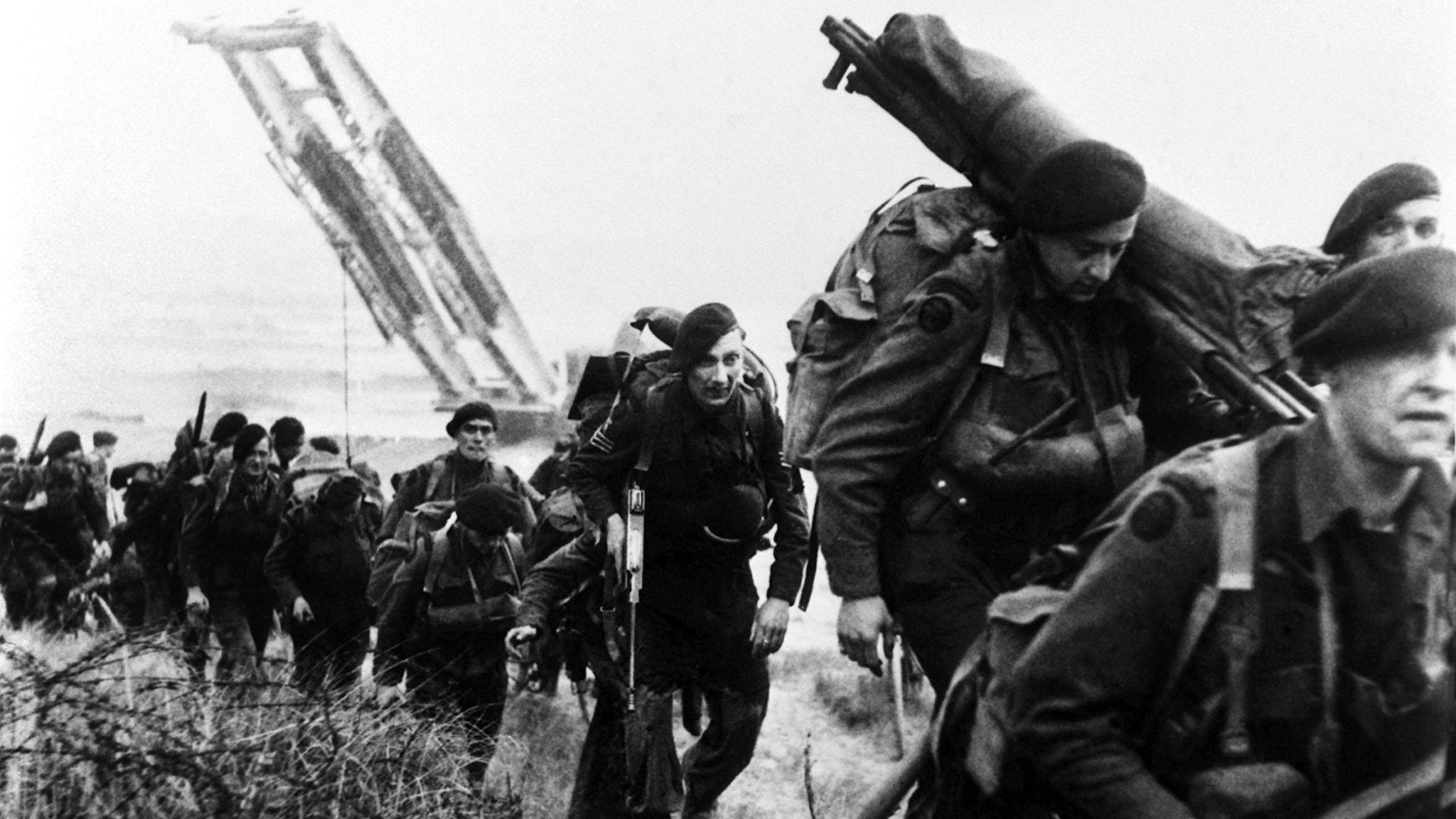
- Published12 April 2015
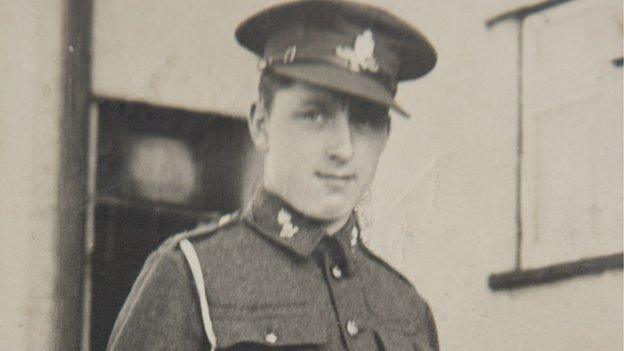
- Published21 November 2014
